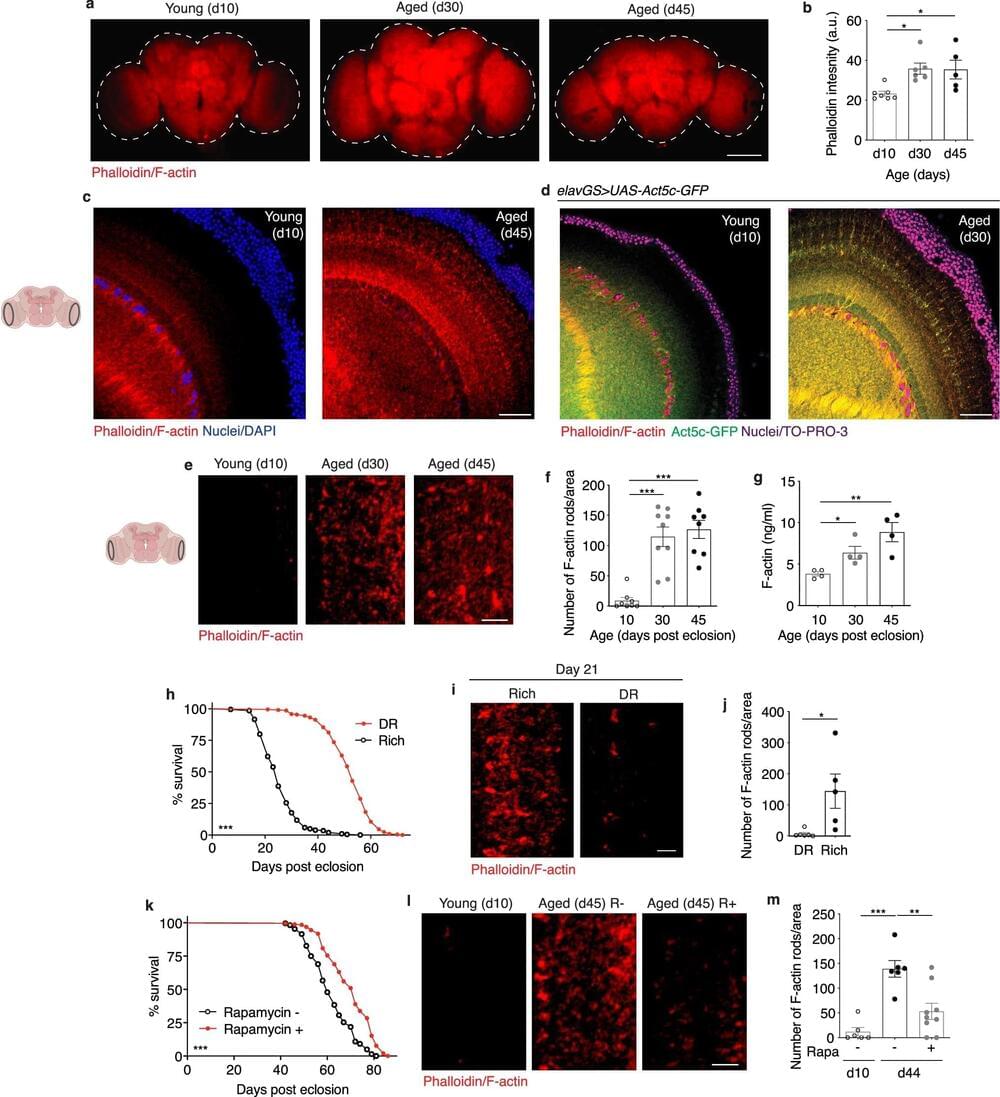Actin, a family of proteins that help give cells their shape, are abundant throughout the body.
Humans aren’t the only ones who grow forgetful as they age—fruit flies do, too. But because fruit flies have a lifespan of only about two months, they can be a useful model for understanding the cognitive decline that comes with aging.
A new study published in Nature Communications shows that when a common cell structural protein called filamentous actin, or F-actin, builds up in the brain, it inhibits a key process that removes unnecessary or dysfunctional components within cells, including DNA, lipids, proteins and organelles.
The resulting accumulation of waste diminishes neuronal functions and contributes to cognitive decline. By tweaking a few specific genes in aging fruit flies’ neurons, the researchers prevented F-actin buildup, maintained cellular recycling and extended the healthy lifespan of fruit flies by approximately 30%.










Leave a reply